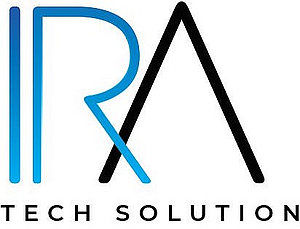Transitioning from a junior to a senior developer in the world of ASP.NET Core can feel like a daunting task. With an ever-evolving tech landscape, it’s essential to grasp not only the technical skills but also the mindset required for advancement. In this article, we’ll delve into strategies, resources, and tips that will help you elevate your skills and transition smoothly.
Before we dive deeper, you might find it useful to check out these two links: the ASP.NET features and the net core features that are critical in building robust applications. Understanding these features is a great starting point for your journey.
Understanding the ASP.NET Core Ecosystem
What is ASP.NET Core?
ASP.NET Core is an open-source framework designed for building modern, cloud-based, and internet-connected applications. It’s a leaner version of ASP.NET, making it more versatile and performant. As you embark on your journey to becoming a senior developer, it’s crucial to master ASP.NET Core’s features, including dependency injection, middleware, and Razor pages.
Why Transitioning Matters
As a junior developer, you might find yourself working on smaller tasks or maintaining existing projects. Transitioning to a senior role means taking on more significant responsibilities, such as architecture design, code reviews, and mentoring junior developers. It’s not just about coding; it’s about leading and guiding others through complex challenges.
Building a Strong Foundation
Mastering Core Concepts
Before you can effectively transition, ensure that you have a solid grasp of ASP.NET Core fundamentals. This includes understanding:
- MVC (Model-View-Controller) Pattern: Learn how to separate concerns within your applications.
- Entity Framework Core: Familiarize yourself with this ORM (Object-Relational Mapper) for data access.
- API Development: Building RESTful services is essential in today’s software landscape.
These concepts are vital in not just coding but in discussions with your peers and stakeholders, enhancing your overall technical acumen.
Hands-On Experience
Practice is key. Get involved in real-world projects, whether through your current job or by contributing to open-source projects. You can also build your own projects, utilizing various net core features to challenge yourself and push your boundaries.
Leveraging Resources for Learning
Online Courses and Tutorials
Numerous online platforms offer courses tailored for ASP.NET Core. Websites like Pluralsight, Udemy, and Microsoft Learn provide structured learning paths that cater to different skill levels. As you learn, make sure to focus on the specific ASP.NET features that are crucial for advanced development.
Books and Documentation
Invest in reputable books that delve deeper into ASP.NET Core and software development best practices. The official Microsoft documentation is also an invaluable resource, providing detailed insights into various features and capabilities.
Gaining Professional Experience
Collaborate with Peers
Engage with your team members, participate in code reviews, and seek feedback on your work. Collaboration is not just about sharing code; it’s about sharing knowledge and gaining diverse perspectives that can enhance your skills.
Mentoring and Networking
Seek mentors within your organization or the broader tech community. Learning from experienced developers can provide you with unique insights and help you navigate challenges effectively. Additionally, attending meetups and conferences can expand your network and expose you to the latest trends in ASP.NET Core development.
Developing Soft Skills
Communication is Key
As you transition to a senior developer role, your communication skills become just as crucial as your technical abilities. You’ll need to articulate complex ideas clearly and concisely, whether you’re discussing project requirements with stakeholders or explaining technical concepts to non-technical team members.
Problem-Solving Mindset
Developing a problem-solving mindset will set you apart from your peers. Rather than simply coding solutions, focus on understanding the root of problems and addressing them efficiently. This approach will not only improve your coding skills but also enhance your decision-making abilities.
Advanced Topics to Explore
Microservices Architecture
Understanding microservices can greatly enhance your development capabilities. As applications grow in complexity, adopting a microservices architecture allows for better scalability and maintainability. Familiarize yourself with the principles of microservices and how they can be applied within ASP.NET Core.
Cloud Services Integration
Being proficient in cloud platforms like Azure is becoming increasingly important. Learn how to deploy your ASP.NET Core applications to the cloud and leverage various cloud services, enhancing your applications’ performance and scalability.
Staying Updated with Industry Trends
Follow Industry Leaders
Keeping up with industry trends can provide valuable insights into what’s next for ASP.NET Core. Follow influential developers, subscribe to relevant blogs, and participate in forums to stay updated.
Continuous Learning
The tech field is ever-evolving. Embrace continuous learning as part of your career. Attend workshops, take new courses, and explore new tools and frameworks related to ASP.NET Core.
Creating Your Personal Brand
Build a Portfolio
As you grow your skills, building a portfolio of your work can demonstrate your expertise to potential employers or clients. Showcase projects that highlight your knowledge of ASP.NET Core and other technologies.
Engage with the Community
Participate in online forums, contribute to open-source projects, and write blog posts about your learning journey. Engaging with the community not only helps others but also establishes your presence in the field.
Conclusion
Transitioning from a junior to a senior developer in ASP.NET Core is a journey filled with learning, growth, and challenges. By mastering core concepts, leveraging resources, and continuously developing both technical and soft skills, you can confidently step into a senior role. Remember, the road to mastery is continuous; embrace the learning process, engage with your community, and never stop exploring the vast net core features and ASP.NET features that can enhance your development career.
FAQ:
Q: How long does it take to transition from a junior to a senior developer?
A: The time varies based on individual experience, dedication, and opportunities for growth. Typically, it can take 3-5 years of consistent learning and practice.
Q: What are the most important skills for a senior ASP.NET Core developer?
A: Key skills include advanced knowledge of ASP.NET Core, understanding architectural patterns, effective communication, and strong problem-solving abilities.
Q: Should I focus only on coding skills?
A: No, while technical skills are essential, soft skills such as communication and teamwork are equally important for a senior role.
Q: How can I find a mentor?
A: Look within your organization or professional networks, attend industry events, or join online communities related to ASP.NET Core.



